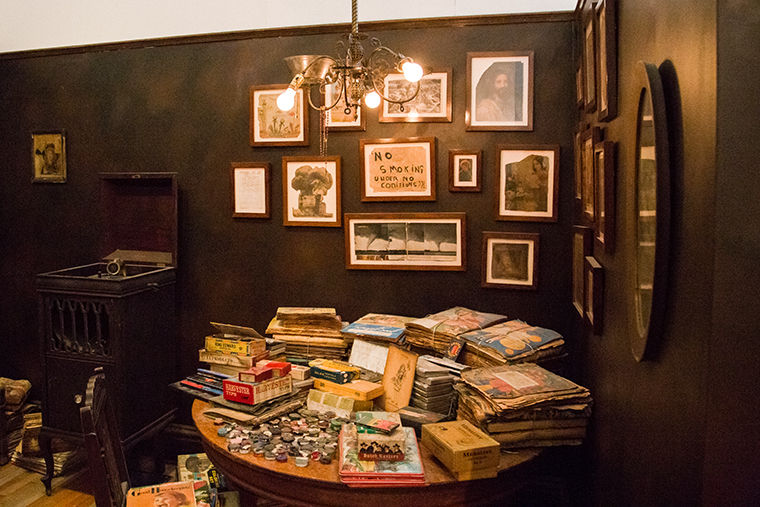Intuit brings outsider art to the masses
Intuit took possession of the contents of Henry Darger’s living space in 2000, which it has compiled in its Henry Darger Room.
November 30, 2015
Frenzied collages, jarring color palettes and strange portraits line the walls of Intuit: The Center for Intuitive and Outsider Art, 756 N. Milwaukee Ave.
Intuit is the only nonprofit organization in the United States focused exclusively on the presentation of outsider art, a broad classification that includes artists who developed outside the influence of formal training.
“Most of these artists have had challenges in their lives. They’re poor, live in rural areas, are victims of abuse or have been diagnosed as schizophrenics,” said Debra Kerr, executive director at Intuit.
According to Kerr, outsider art, originally called “Art Brut,” captures forms of expression that are uninfluenced by competition, social expectations or money.
“This art comes from a much more pure place, uninfluenced by the academy [or] the mainstream of art,” she said.
Kerr added that outsider art has a tremendous capacity to facilitate personal healing, noting the work produced—whether technically proficient or not—serves as a source of pride, solace and contentment for those who produce it.
Among Intuit’s permanent collections is the Henry Darger Room, which houses the life work of Henry Darger, a Chicago native who spent his childhood in the Illinois Asylum for Feeble-Minded Children. Throughout six decades, he produced a massive body of work that includes hundreds of paintings, illustrations and collages, as well as a 15,145-page epic text, entitled “The Story of the Vivian Girls, in What is Known as the Realms of the Unreal, of the Glandeco-Angelinnian War Storm, as caused by the Child Slave Rebellion.”
Jeff Spitz, an associate professor in the Cinema Art + Science Department, takes his students to Intuit for his class “Chicago: My Kind of Town,” which examines the history of Chicago through the arts.
“What I found at Intuit is my students come face-to-face with artists who were not trained but who were inspired authentically to create,” he said.
Intuit has been involved in various social outreach programs involving local schools, libraries and other museums to promote outsider art and arts-integrated education. Among these programs is IntuiTeens, which runs every summer, according to Joel Javier, education manager at Intuit. The program gathers 12 teenagers from Chicago public schools each summer and immerses them in the Outsider Art tradition.
Other Intuit initiatives include sculptural workshops with blind seniors, arts education for the developmentally disabled and a teacher fellowship program, which allows science and language arts teachers to develop an arts-integrated curriculum, Javier said.
Kerr said Intuit emphasizes that it is unnecessary to be technically adept to enjoy the process of creating art.
“I used to work at Shedd Aquarium, and I always loved that you didn’t need to know anything about the animals to be attracted to them and to find enjoyment in them,” she said. “The beautiful thing is that you don’t need to know anything about this art to enjoy it either.”
Intuit celebrates its 25th anniversary next year. To learn more, visit www.Art.org.








